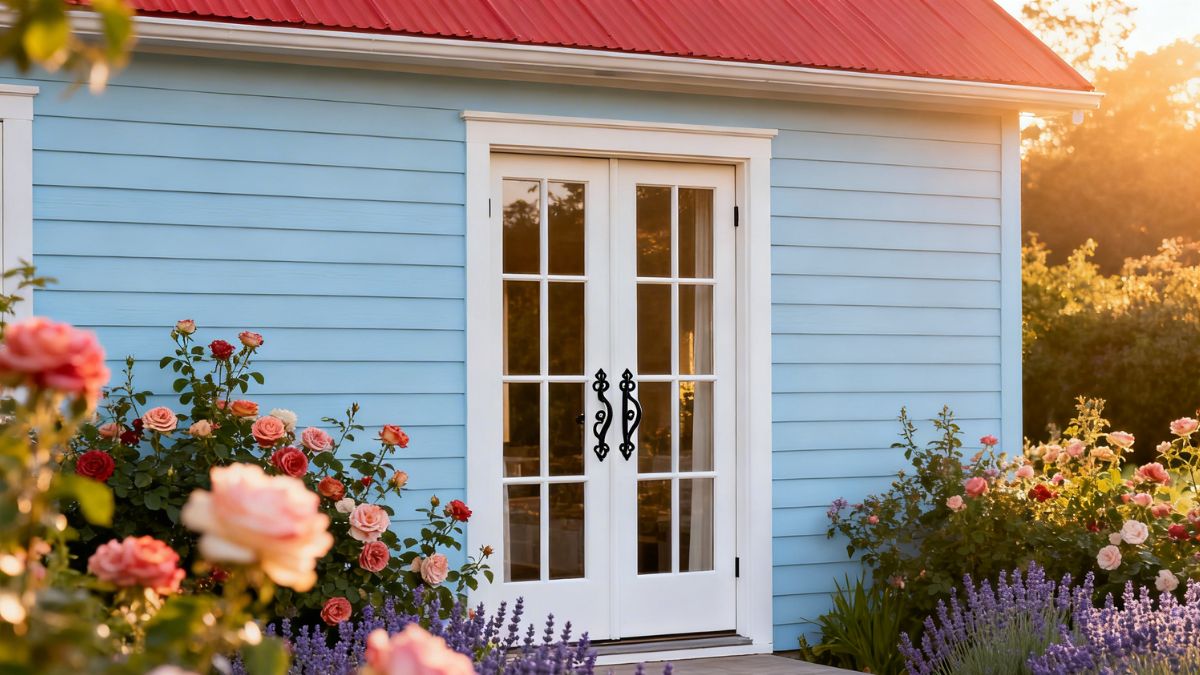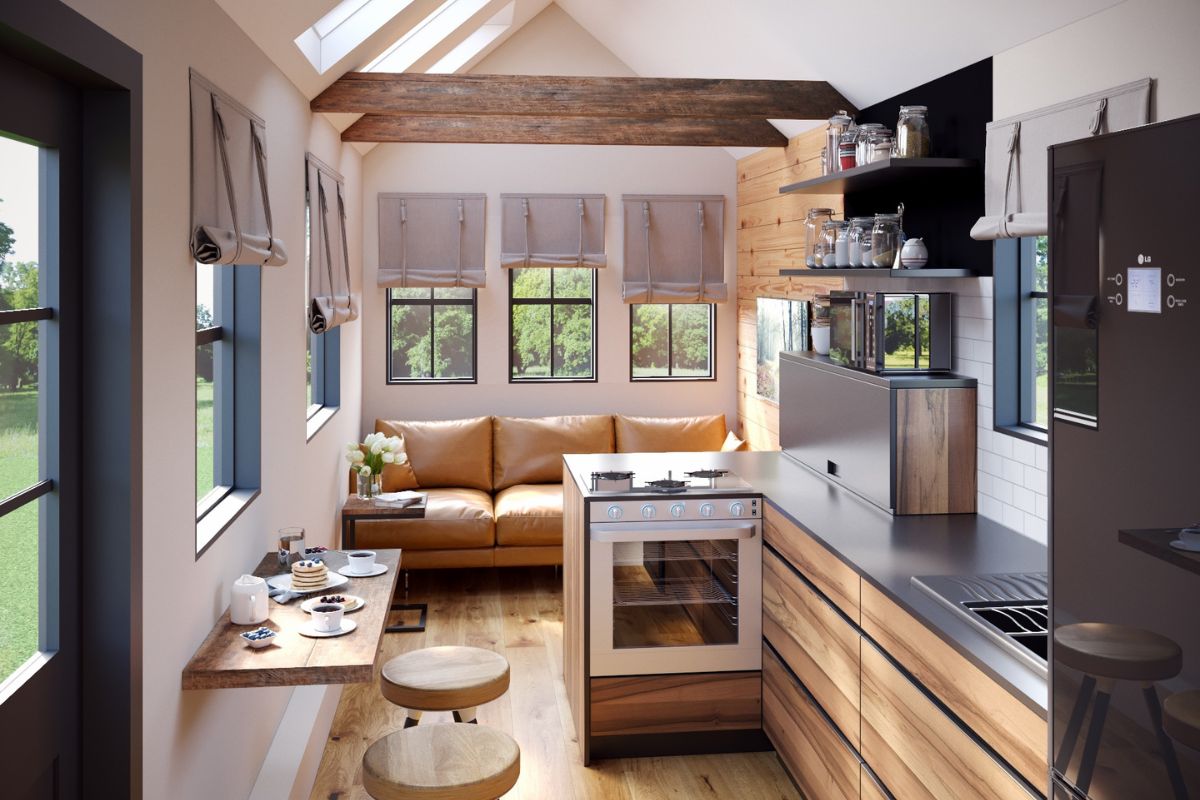Tiny Homes and Resilience: How to Persevere
.jpeg)
Presented by BetterHelp.
Building a tiny home can present all sorts of challenges. The payoff, however, can be immense—e.g. freedom, savings, and a well-deserved sense of accomplishment.
But what should you do when the going gets tough? If you’re doing a DIY tiny home project, you’re bound to encounter your fair share of ups and downs. Learning how to persevere in the face of adversity—i.e. being resilient—is absolutely essential if you’re going to make it all the way through.
So, read on to learn more about resilience and how you can apply it to the various challenges that may come your way on your tiny home journey.
Resilience 101
There are many ways that you can work on becoming more resilient, including by checking out the helpful resources on resilience available online through BetterHelp.
Here are some of the best ways that you can improve your resilience, no matter what challenges you may be facing.
- Break free from negative thinking – It is quite easy to get into a cycle—or spiral—of negative thinking. If a challenge comes your way and you don’t succeed, you may extrapolate that result and think that everything else is going to automatically fail. This way of thinking can completely derail your project, however, so you have to actively work on not dwelling on the negative if you have that tendency.
- Stop awfulizing – “To awfulize” is an expression I learned from my dad. It’s essentially when we are always thinking of the worst-case scenario. More often than not, the worst-case scenario doesn’t come to pass. I’m not saying that you shouldn’t be prepared; I’m saying instead that constantly assuming the worst can cause major paralysis when it comes to advancing with any given project or situation.
- Accept failure – There is no progress in life without making mistakes. There’s no excitement and no advancement without getting outside of our comfort zone. When you embark on a given project, you will progress much faster if you accept that failure is a natural part of the process. After all, if you never try, you will never get anywhere at all.
- Learn from past mistakes – Failure and mistakes are simply part of being human. They enable us to make progress and learn. The only bad sort of mistake to make is one that you don’t learn from.
Tiny Home Challenges
The tiny home movement has taken off for plenty of good reasons. Some of the difficulties of pulling off your very own tiny house shouldn’t go unrecognized, however.
So, read on to learn about some common challenges.
Finding a Place to Build
Arguably one of the most important aspects of a tiny home build is having a place to build. You can’t overlook this, as it can get quite complicated.
For example, there are zoning regulations and building codes that vary depending on where you are. You may feel a bit like a lawyer as you parse through complex legal codes.
One way that you can get around this is that tiny houses on wheels can be considered RVs, which usually do not have the same residential zoning requirements.
In any case, be sure to do you research so you don’t end up wasting precious time and money.
Making Tough Choices
You can’t have it all when it comes to building a tiny home. It’s by definition a small space, and you have to make every square foot count. This means that you’ll end up having to make a lot of touch choices.
For many people, this is the hardest part of joining the tiny house movement. They simply have a lot of trouble parting ways with their possessions. This is why a minimalist philosophy is complementary with the tiny house movement and should ideally be embraced by those looking to join it.
Financial Issues
Many banks won’t offer loans for tiny homes because they don’t consider them as having the same kind of resale value as traditional homes. So, you might run into certain financial issues due to this.
You may also have difficulties that come up as you go along, especially if you end up buying materials that you don’t use or end up needing to change things. This is yet another reason to do ample research before you commit to purchasing your materials.
Social Pressures
Society generally wants us to think that tiny home living is an aberration. In other words, why would anyone want to reject our wonderful consumer culture?
Capitalism is a dominant force in our daily lives, and many people may question you and your desire to join the tiny house movement. People may even get defensive and be outright dismissive or mean if you bring up the tiny house movement. After all, they’ve bought the lie that we need material possessions in order to be happy and considered “successful.”
Facing this kind of social stigma can be tough. You’ll have to be confident and remember to follow your own vision, not someone else’s or society’s at large.
Getting Used to Tiny Living
Once you’ve got your tiny home all set up, the hard part will be over, right? Well, yes and no.
Getting used to living in your tiny house can take some time, especially if you are drastically downsizing. You will have new challenges, like, say, hosting guests when it’s cold outside. It may just not be possible. But hey, there are plenty of restaurants out there, and ideally your friends are willing to host as well.
You may have other challenges, like accommodating pets or children in a tiny home. Whatever it is, however, you will adapt and get used to it with time. That’s what resilience is all about.
Conclusion
Tiny home living is a blessing for many people. Once you make it all the way through, you will likely feel immensely proud at what you’ve accomplished.
That said, there may be many difficulties along the way. Training your resilience is important if you want to maintain your cool and ride out the highs and lows. And besides, being more resilient is beneficial for just about every aspect of life!







.jpg)

